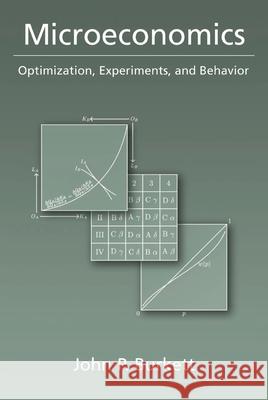Microeconomics: Optimization, Experiments, and Behavior » książka
Microeconomics: Optimization, Experiments, and Behavior
ISBN-13: 9780195189629 / Angielski / Twarda / 2006 / 352 str.
In this book, John P. Burkett presents microeconomics as an evolving science, interacting with mathematics, psychology, and other disciplines and offering solutions to a growing range of practical problems. The book shows how early contributors such as Xenophon, Ibn Khaldun, and David Hume posed the normative and positive questions central to microeconomics. It expounds constrained optimization techniques, as developed by economists and mathematicians from Daniel Bernoulli to Leonid Kantorovich, emphasizing their value in deriving norms of rational behavior and testable hypotheses about typical behavior. Applying these techniques, the book introduces partial equilibrium analysis of particular markets and general equilibrium analysis of market economies. The book both explains how laboratory and field experiments are used in testing economic hypotheses and provides materials for classroom experiments. It gives extensive and innovative coverage of recent findings in cognitive psychology and behavioral economics, which not only document behavior inconsistent with some traditional theories, but also advance positive theories with superior predictive power.











